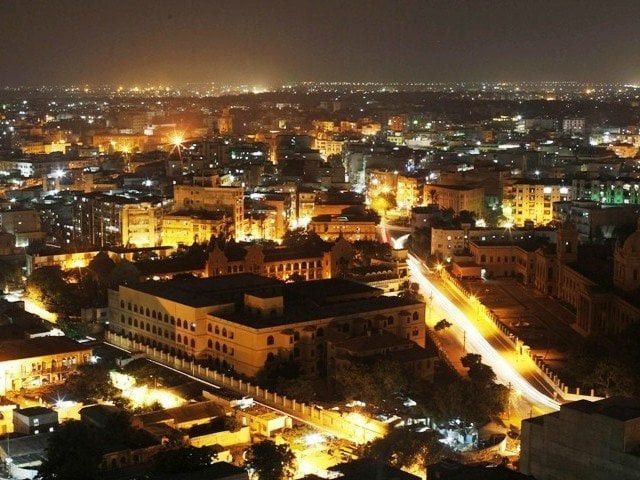Inflation in Karachi outpaces all other cities
Average inflation in Jan-Jun was 5.1% in metropolis

Apparently, higher electricity tariff in Karachi compared to other parts of the country and higher increase in property prices and rents have pushed inflation higher, said Saqib Sherani, a former principal economic adviser of the finance ministry. PHOTO: REUTERS
According to the inflation monitor of the State Bank of Pakistan (SBP), prices in Sindh’s provincial capital rose at a higher rate than in Lahore and Islamabad with analysts attributing the trend to faster economic growth in the city compared to other major cities.
Karachi, the most expensive city to live in
According to SBP data, average inflation in Karachi in the first six months of 2016 remained 5.1%. This is significantly higher than 2.9% in Islamabad, which is often called the most expensive city in Pakistan. Average inflation in Lahore, the provincial capital and the largest city of Punjab, remained shockingly low at just 1.6% during the same period. Meanwhile, average inflation in the country read at 3.6% between January and June of the current year.
Analysts attribute Karachi’s rising prices to the boost in economic activity that has enveloped the industrial capital.
“Karachi’s economic growth has been much faster compared to any other city in the country in the last one year,” said Invest & Finance Securities CEO Muzammil Aslam. “This is likely putting pressure on the demand side, fuelling inflation.” Property prices have also jumped significantly, especially in areas that were hit hard by violence, which is also a reason why inflation is rising faster in the city, he added.
“The sharp rise in inflation in Karachi shows that the city is expanding and this augurs well for the overall economic growth of the country. However, this trend is dangerous for hundreds of thousands of labourers who work in the city. They may be forced to shift back to their hometowns if high inflation persists in the coming months.”
Inflation accelerates to 4.12% in July
While inflation in Karachi is higher than in other cities, oil prices have helped keep the pace in check. Some analysts believe that a rebound in the international price of crude oil may quickly make matters take an uglier turn in Karachi, as well as other cities.
“The government needs to make sure Karachi gets all its attention because rising demand of food and non-food items will continue to fuel inflation. The government should improve both supply and demand of both food and non-food items in the city,” he added.
Apparently, higher electricity tariff in Karachi compared to other parts of the country and higher increase in property prices and rents have pushed inflation higher, said Saqib Sherani, a former principal economic adviser of the finance ministry.
“Perhaps one of the reasons of higher property prices in Karachi is speculation because there are reports that say people invested huge money in the city, diverting money from Dubai where growth was slower.”
Published in The Express Tribune, August 7th, 2016.



















COMMENTS
Comments are moderated and generally will be posted if they are on-topic and not abusive.
For more information, please see our Comments FAQ